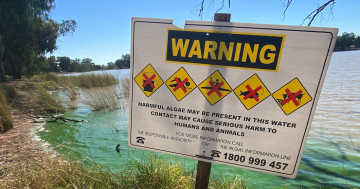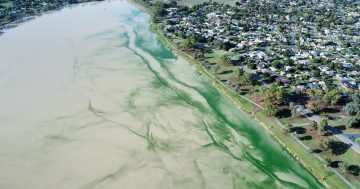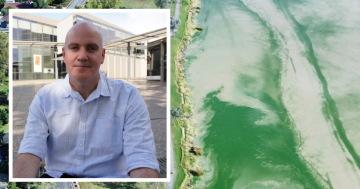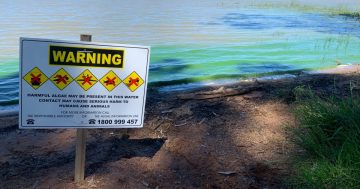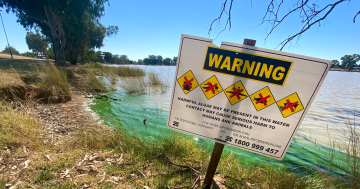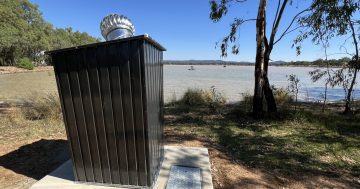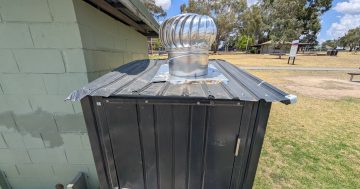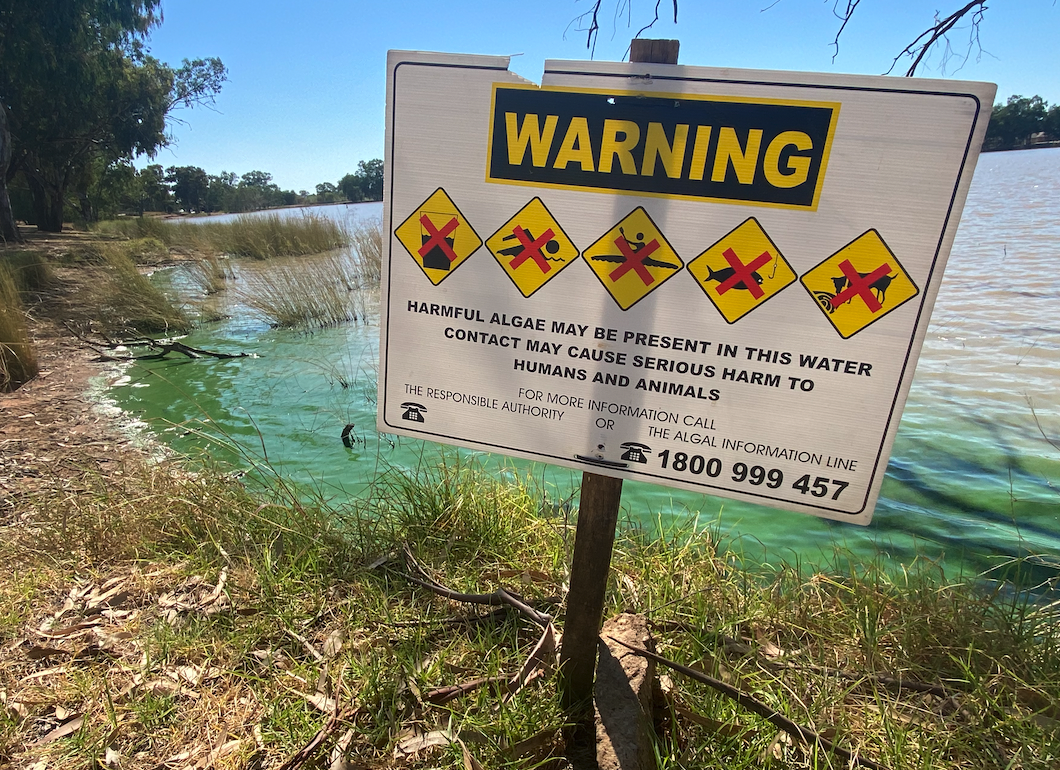
Wagga Wagga City Council has decided to trial new technology to fix Lake Albert’s algae issues instead of continuing with the Waterzyme product. Photo: Chris Roe.
Wagga Wagga City Council (WWCC) has announced it will be trialling a new program at Lake Albert in an attempt to combat the lake’s ongoing blue-green algae outbreaks.
The new Hydro2050 technology trial will hope to utilise the generation of oxygen within the lake to improve the health of the existing water while also using the ozone to break up and oxidise any existing algae blooms.
Council’s Manager City Growth & Regional Assets Ben Creighton said the treatment had been used internationally in bodies of water smaller than Lake Albert but said WWCC would continue with the new program for at least six months.
“This is a trial, so we’re essentially only signing up for the six months. If it shows signs of being successful we’ll review to see whether this is something that we want to continue to do into the future,” he said.
This time last year WWCC agreed to trial a program with Waterzyme to break up blooms. Although the trial with Waterzyme had concluded midway through 2024, Waterzyme offered to continue offering the trial. Mr Creighton said despite showing some signs of success, the Waterzyme product was unable to clear the lake enough to lift restrictions resulting in WWCC looking for an alternative.
“When we considered this year and the blue-green algae treatments for this summer season, we looked at all options again,” he said.
“The Waterzyme product did show that it was able to reduce algae but was unable to do enough to remove our health advisories from the lake.
“Even though it was having a positive impact, it wasn’t actually having the impact that the community needs in terms of them being able to continue to utilise the lake.
“We did think about reconsidering the Waterzyme treatment quite a lot during this process, but we have just determined to go through with this additional trial with a new product this year.”
The new Hydro2050 technology is expected to cost $300,000 for the six-month trial.
“We had already committed $180,000 with the additional funding expected to come from a parks and recreation reserve, where funds have been allocated for future projects which the Lake Albert trial falls under,” Mr Creighton said.







